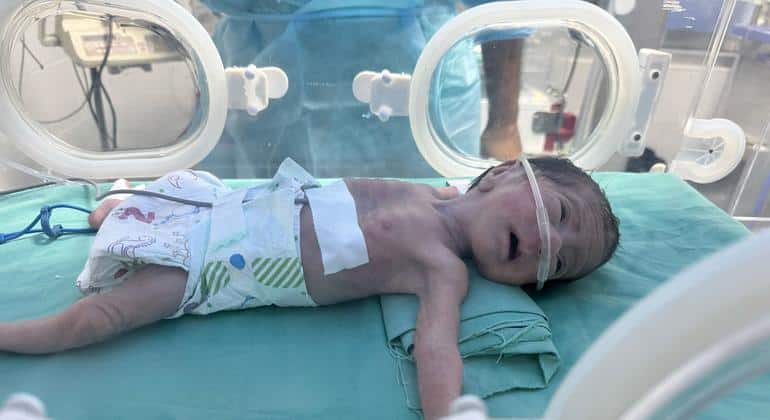The Commissioner-General of the UN Relief and Works Agency for Palestine Refugees (UNRWA), Philippe Lazzarini, has made strong accusations about the current situation in Gaza, describing the massive famine affecting the region as “constructed and deliberate.” In a recent social media post, Lazzarini lamented the loss of more child lives due to malnutrition and emphasized that Israel maintains complete control over humanitarian access in the Gaza Strip.
Lazzarini criticized the distribution system of the Gaza Humanitarian Fund, supported by Israel and the United States, stating that this mechanism is designed to fulfill military and political objectives. According to him, the ineffectiveness of this system is evident, as it causes more deaths than it can prevent.
Despite Israel announcing the delivery of humanitarian aid through parachute drops from Egypt and the United Arab Emirates, Lazzarini described this method as “the most expensive and inefficient” way to provide assistance, suggesting it is simply a distraction from the lack of effective action by the authorities. He added that UNRWA has food and medical assistance equivalent to 6,000 trucks that are stranded in Egypt and Jordan, ready to be sent to Gaza.
On another note, the Office for the Coordination of Humanitarian Affairs (OCHA) also expressed concern about the “numerous difficulties” on the ground that hinder the effective delivery of aid. They indicated that violence near designated routes and humanitarian facilities poses a risk to both personnel and available resources. The situation is worsened by looting by armed gangs and the atmosphere of desperation among the civilian population.
OCHA also pointed out that Israeli forces have delayed and denied access to UN and NGO convoys, disrupting supply chains. They highlighted the lack of adequate logistical equipment and the deterioration of civil infrastructure as additional obstacles.
To improve this situation, OCHA demanded that the safety of humanitarian workers be guaranteed and access to assistance be facilitated. This includes the need for clear and passable roads, as well as the entry of essential supplies and fuel. The agency emphasized the urgency of ensuring safe transit for the population and facilitating visas for humanitarian personnel.
If these demands are met, the UN has proposed the possibility of scaling up its humanitarian operation for 30 days, with the option to extend it. This operation will focus on food distribution, restoring health services, improving access to water and sanitation, and addressing the malnutrition of approximately 200,000 displaced people. However, OCHA emphasized that these efforts are contingent upon the removal of current obstacles and sustained international commitment.
Source: MiMub in Spanish











